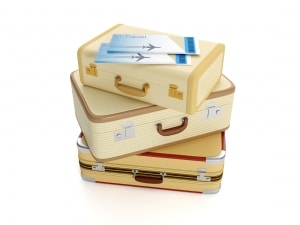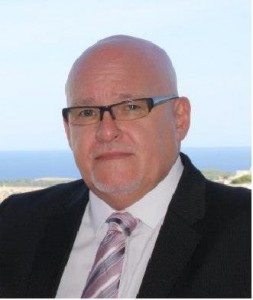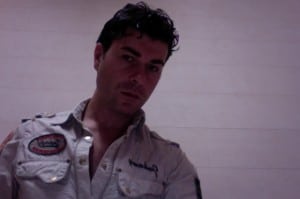
Make yourself at home
The great weather, the hospitality, everyone speaks English – Malta is a great place for ex-pats to live right? Josanne Cassar meets four people from four different countries to ask them about their experience of what it’s really like adjusting to life in Malta
From: UK
In Malta: 6 years
“We retired early at the age of 50, and had been thinking of living abroad for the previous 5 years. Malta was not our first choice, our top three were Cesme, Turkey, then Rhodes, Greece and the third choice was Cyprus. There were various reasons at the time not to go to any of them. We had been to Malta only once on holiday (the previous year) and didn’t like it at all; in fact we hated it because of its high .level of street level rubbish and dirty beaches. However we decided to give it another try as we thought we might have just been in the wrong place. We lived in Bugibba for 6 months and hated it, and then we moved to Mellieha and we liked it.”
David said that settling here was not difficult, just more frustrating and it took a good 6-12 months to feel like home. He points out that what made it easier for them was the fact that they only live here and don’t have another home in their home country
“The easiest thing to adapt to was the more relaxed attitude; we had no stress as we didn’t have to work to live here. However, the difficult bits are mainly the registration and constant registering with ARMS every time we move house. We have made four moves so far and have had to re-register with the supplier each time. So I would say the most difficult aspects of relocating to Malta are mainly administrative which here seem so antiquated and chaotic.”
Despite David’s initial dislike of the island, when asked if he and his wife have any regrets about choosing Malta, he says no, describing it as “an enlightening experience”. For the future, however, they have set their sights elsewhere.
“After six years we now know 100% it’s not the place for us. We have a long term plan to go and live in a more accepting, civilised country – one that doesn’t refer to us as foreigners and aliens; one that doesn’t have a double standard on prices, one that has a better infrastructure and a far prettier landscape.”
The ‘foreigner’ reference is perhaps the one aspect which irks David the most.
“We are and always will be the foreigner here; that’s the way this island is. We have never not been accepted – but only as foreigners living here. We often feel like we are only accepted as cash cows and that we are only tolerated for the cash that we bring and spend. There seems to be an acceptance that we are here to be treated differently and a wrongful assumption that we have more money and thus should pay more. Don’t misquote me, we have some great Maltese friends and have had fabulous experiences with them, plus they have helped us in so many ways; in ways that we wouldn’t and didn’t expect. We always said that the minute the balance of good and bad things about Malta was more in favour of bad we would leave…and that time has arrived.”
Unfortunately, the sour experience of the last six years, where the bad has outbalanced the good means that, if asked, David would not recommend Malta as a good place for ex-pats to settle.
“However, if one wanted to try it then I would promote active awareness – to be wary of a mountain of things that you will get stuck with if you don’t take active protection by making yourself aware. In fact, I have personally developed a list if things I give to newbies to the island to watch out for so as not to get ripped off and things to look out for when seeking a rental or purchase of property. This I actively distribute by various means to any newcomer / new arrival to make them aware of the quite deliberate traps.”
From: Germany
In Malta: 1994 – 1999; 2008 – present
“Before I moved to Malta the second time, I lived in Salzburg / Austria for 3 years. My decision to then move to Malta was mainly driven by work opportunities,” Maria says.
“To acclimatise again took some time, longer than it took the first time. Malta has changed a lot within 10 years. I still cannot say that I have settled completely and the feeling of being at home has not fully cropped up yet.”
The easiest part of settling back in the country was to catch up with friends whom Maria had left behind. The most difficult situations were and still are to deal with officials. “As a foreigner one basically has no rights in Malta or the officials make it deliberately very difficult to get problems solved (by resorting to language barriers ) or by giving you wrong information on how to handle certain issues (police, MEPA, Arms etc.). The legal system also dishonourably discriminates against foreigners.”
Having pointed out these obstacles, Maris still thinks that from the economic point of view, Malta is still a good place to live if one has a well paid job, not to mention the climate which is a big plus point. “I don’t regret my move although I cannot see myself staying here for good.”
There are many times when Maria says she is acutely made to feel like “a foreigner”.
“When following the comments of Maltese people on newspapers it is quite obvious for me that foreigners are not very welcome in Malta as soon as they dare to express their opinion, especially, if Malta and its people are criticised. It seems to me that the majority has still not realized that time has changed and that “foreigners”, if one can use this word in times of the EU, do have a right to speak out as we work and pay our tax here. When I compare this situation with my home country, where there is freedom of speech, Malta seems to me more like a dictatorship than a democracy, e.g. the Times of Malta has so far never published any article of mine let alone let pass a comment which I have written in response to a letter. Basically it is a joke that a comment is not passed immediately but has to be revised by the editor; to me this is dictatorship.”
There was a time in the past when Maria would have recommended Malta but that is not any longer the case. “The island used to be so beautiful but little is left of this beauty, People litter, hunters do not remove the cartridges, people do not clean after their dogs. The noise level is at times and certain areas unbearable. Going regularly for long walks I can witness how the countryside has been ruined, not to mention the concrete hell in certain areas. People do not pay attention to their island which used to be a treasure. Compare Malta with Sicily – the village of Taomina is so well presented and clean and people are proud to keep it nice and tidy. Here you see these fancy and expensive apartments which have been built but the area around this luxuriousness looks filthy. Only when it is too late people will wake up and notice what they have done out of greed but then it will be too late.”
From: Portugal
In Malta: 10 years
“I worked with a Maltese hospitality company in Portugal, and had visited Malta a few times before I finally came to live here. When I arrived in January 2004 funnily enough i joined another company, competitor to the one who introduced me to Malta. At that time it was natural for me to come and live here as my career was taking over my entire life and this was the right move for me.”
For Ana, adjusting to Maltese life took a long time.
“It was not easy to settle in; I would say particularly during the entire first two years I remember feeling extremely lonely outside my work environment and finding life expensive, and the houses in terms of construction very different from what I was used to . Language wasn’t really a barrier as everyone would speak in English to me, however my feelings at that time was that the Maltese in general were somehow not so open to foreigners. This opinion quickly changed as years went by . When did I start to feel at home? I don’t really know how to answer this; it just became natural with time to live in Malta.”
Undoubtedly, the fact that everyone speaks English was fundamental for Ana to decide to live in Malta. It also helped that she came from another Mediterranean country. “This made it easier to adjust, in addition to the wonderful weather, and the amazing blue sea. Food was difficult to get used to, although in time I found out that a few Maltese traditional dishes are quite similar to Portuguese, such as rabbit. Also the olive oil, and olive flavour were familiar to me. To be honest, when it came to Italian cuisine I could not understand why everyone was so much in love with pasta. But even that I surpassed and I have learned how to appreciate it and love it. The most difficult thing, I believe for me was the sense of living on a small island; you cannot decide to go on a long ride where no one knows you. It can be small sometimes. Also the lack of choice in shopping particularly during the first few years of my stay, when back home I used to buy everything in big shopping malls.”
Although there were a few situations where she felt alienated and made to feel like an outsider, Ana says she never really took much notice of it. “For example being in a meeting with everyone speaking in Maltese can be challenging, but after all these years I am the only one to blame, as I should have learned Maltese. There is just one thing I never understood which was, why should I pay higher water and electricity bills as a foreigner when I pay all my taxes in Malta? On the other end for me, there is a rich mix of nationalities which makes the island also very interesting.”
Without hesitation, Ana says she would definitely recommend Malta. “Just recently, Malta was classified the world’s second safest country by the 2013 edition of the World Risk Report, drawn up by the United Nations University’s Institute for Environment and Human Security. Also, there is a good education system, although I hear people complaining around me which I cannot understand. In my country a middle class family needs to make huge sacrifices to have their children continue with their studies, particularly at University level.
My piece of advice would be: Malta is a small island, and sometimes that can weigh down on us. But I believe this is the common feeling of living on an island. Otherwise it is wonderful to live in Malta, the weather brightens your days and in my experience, from 2004 to now, the economic and social life of the country developed immensely.”
As she look back over the last ten years, Ana says she has absolutely no regrets. “Malta has became my second home, and after all those years I have built amazing and true friendship, which is what I treasure the most.”
From: Italy
In Malta: 6 years
“I came to Malta the first time in 2002 for a holiday with one of my friends. On that occasion I met my wife and moved here permanently after I got married in 2008. Before that Ii used to come every month for a week or so, sometimes even over a period of three months.
I have to admit that my decision to move here came mainly because of my wife, and it was also a good occasion to learn English for good! Maltese is a bit more difficult. I understand that for Maltese citizens it would be a pleasure to hear a foreigner speak in their languages, and I can see it in their smile when i manage to say a word! But as I said, it is not easy at all. Of course i did consider other countries like England or even America.
Salvatore found it very difficult to adjust and he is still not even sure if he has settled yet, let alone feels at home. “As much as you live in a country that is “not your own”, you will never really feel 100% home, plus you have to start everything from scratch, like a new languages, new culture, new ways of life; things that in your country, you were not used to. It is like you’re born for the second time. With Malta being so near to Italy, I thought it would have been easier. But you don’t always feel accepted, especially in the first months, when people look at you like “the foreigner”. Than with time people start getting used to you and everything starts coming into place in one way or another.”
When asked what the easiest thing to adapt to in Malta was, Salvatore laughs, “I think eating pastizzi. Then there is the beauty of being able to communicate with different persons of difference cultures, as apart from Maltese, you constantly meet other ex-pats, living or studying here or just on holiday. The most difficult thing to adapt to, well it was mostly the way of life (which I am not saying is wrong, mind you) but as I mentioned before everyone has his own way, so it takes time to adapt to certain things:
Any regrets? Salvatore hesitates before replying: “This is a very particular question and takes quite some time to think about and give a “real answer” to, but offhand well I guess I cannot complain. Regrets? I should have chosen another country where to go on holiday in 2002. ( I’m sorry wife, I’m just messing around!)” he adds with another laugh.
Like the other people I interviewed, Salvatore admits there were times when he felt excluded, especially in the beginning during conversations. “I couldn’t understand a word of Maltese and in a group I could not interact. I sometimes did hear some comments when looking for a job like you foreigners come to Malta and steal work from us. Believe me that is really not a nice thing to hear. In fact if I have to think about it, I felt mostly not welcome in the job industry. It is like you’re always the second option. Then there are a lot of Maltese that made me feel part of a group, made me feel one of them, something immensely important for a person living abroad, a person that leaves family and friends for various personal reasons.”
When I ask my final question about recommending Malta, Salvatore is both honest yet complimentary in that inimitable way that Italians do so well: “Why not! I would recommend it mostly for holidays though, if someone is not ready to change their way of life drastically. Malta is a very nice island, with lots of things to do, and the history is fascinating!”
- January 17, 2014 No comments Posted in: Features









